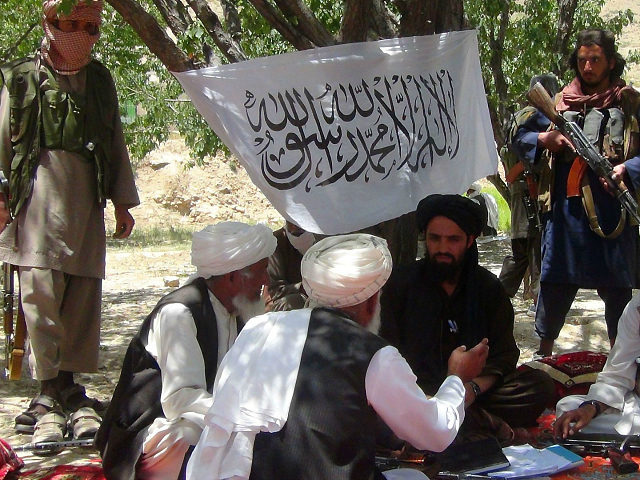The Islamic State (ISIS/ISIL) branch in Afghanistan has become a significant menace against the West despite the fall of the group’s caliphate in Iraq and Syria, a top American commander warned this week.
In June, Brig. Gen. Lance R. Bunch, the top U.S. air commander in Afghanistan, noted that the ISIS wing has attempted to “establish” its own “caliphate” twice this year alone in the eastern Afghan province of Nangarhar along the Pakistan border, considered the group’s primary stronghold in the region.
U.S.-NATO-assisted Afghan National Defense and Security Forces (ANDSF) have so far managed to thwart the ISIS attempt to establish a caliphate in Afghanistan, Gen. Bunch declared.
Gen. Joseph Votel, the chief of U.S. Central Command (CENTCOM), charged with overseeing the war in Afghanistan, warned Pentagon reporters on Wednesday the American military is “concerned” ISIS in Afghanistan intends to attack the West.
“I think we always have to be concerned about ISIS, whether it’s ISIS-K or whether it’s any of the other branches of it, harboring intentions to operate, you know, much more globally or externally from the areas in which they’re operating. And so, you know, we do have that concern about them,” Votel said.
The ISIS branch in South Asia, which primarily operates in Afghanistan and Pakistan, is known as the Khorasan Province (ISIS-K).
Asked whether the U.S. military is aware any links between ISIS-K and outside groups that would potentially carry out attacks in Europe or against the United States, Gen. Votel responded: “I think in general ISIS does have that intention.”
When pressed to describe any actual plots by ISIS-K on the West, the top commander added, “I think there probably has been, but I can’t cite a specific example to you.”
Back in October 2016, the U.S. military acknowledged that ISIS was “very focused on trying to establish their caliphate, the Khorasan caliphate, inside Afghanistan.”
ISIS officially announced its presence in Afghanistan in early 2015, less than a year after the United States declared its combat mission over at the end of 2014.
The U.S. has been assisting the Afghan forces in their fight against ISIS in their stronghold of Nangarhar.
“We have killed numerous ISIS-K fighters this year,” Gen. Votel told reporters Wednesday. “The military campaign against ISIS has been both continuous and effective.”
The general stressed that U.S. efforts towards “reconciliation” between Kabul and the Taliban, the primary goal of American President Donald Trump’s strategy to end to the nearly 17-year-old war, are separate from the fight to annihilate ISIS.
“It is important to recognize that while we apply military pressure against the Taliban to bring them to the table of reconciliation, we harbor no illusion about reconciliation with ISIS-K; our mission is to destroy this organization,” he declared.
Citing U.S. officials and the latest American intelligence estimates, Voice of America (VOA) reported this week that efforts to root out and decimate ISIS-K have “so far failed to prevent the terror group from maintaining a foothold in the country.”
“IS-Khorasan is thought to have more than 1,000 fighters, most of them located in Afghanistan’s southern Nangarhar province, with a small number operating in the country’s eastern Kunar province,” VOA added.
The ISIS branch reportedly reached a peak of 3,000 fighters in Afghanistan.
According to a report from the United Nations Mission in Afghanistan (UNAMA), ISIS-K was behind more than 50 percent of civilian casualties in the war-ravaged country through the first half of 2018.
The University of Maryland’s renowned National Consortium for the Study of Terrorism and Responses to Terrorism (START) listed ISIS-K among the 10 top prolifically deadliest terrorist group’s in the world last year, separate from core Islamic State in Iraq and Syria.
Last year, ISIS-K carried out 197 attacks, killing 1,302 people, the study revealed.

COMMENTS
Please let us know if you're having issues with commenting.